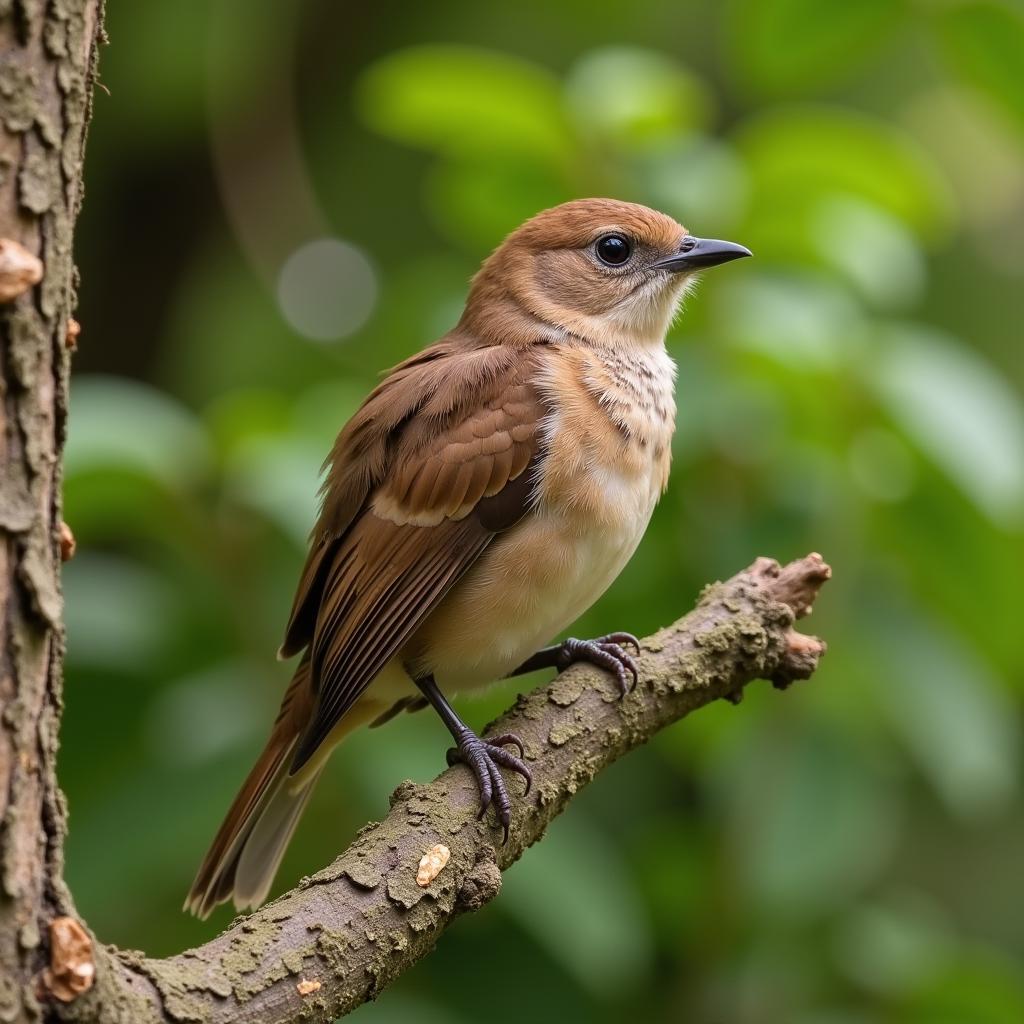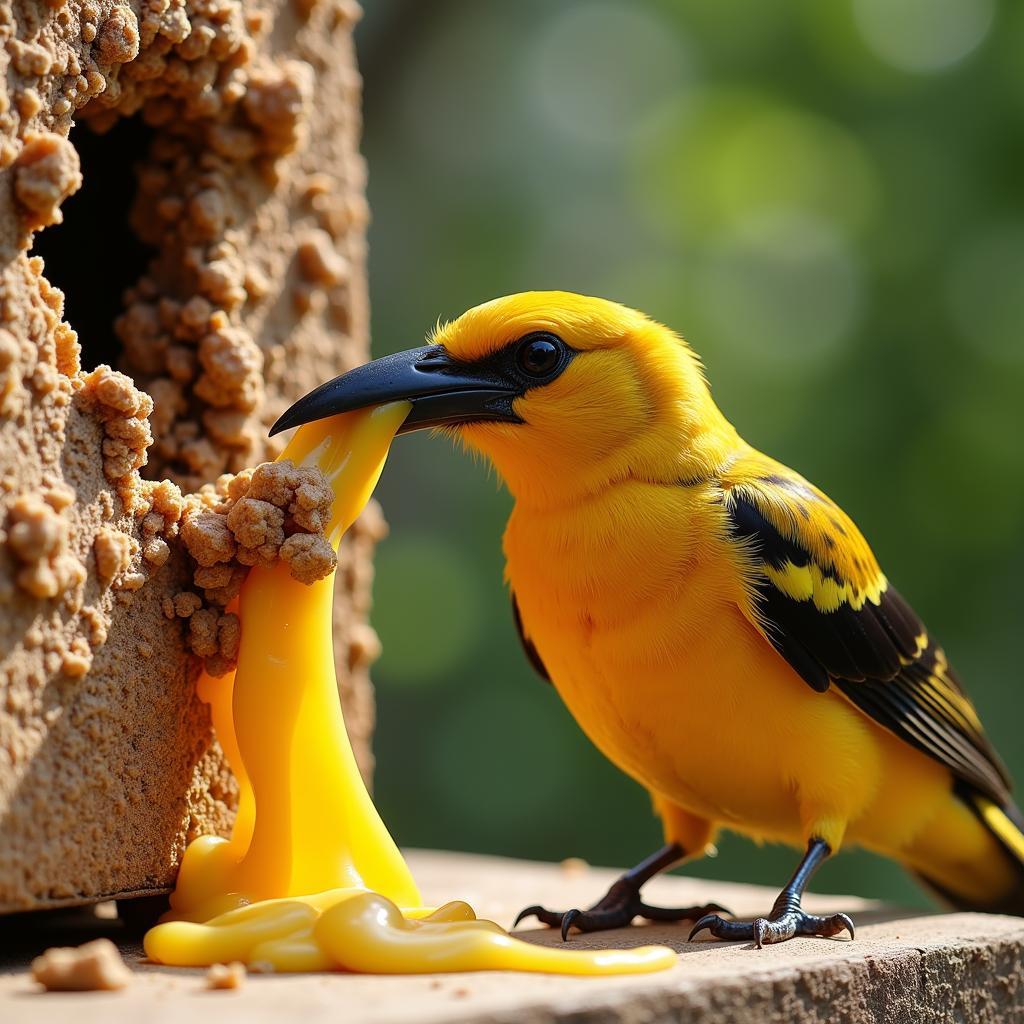The African Honey Bird, a small, nondescript creature, plays a crucial role in the African ecosystem. This bird, with its unique ability to guide humans and other animals to hidden beehives, embodies a remarkable example of symbiosis found in the African wild.
 African honey bird searching for a honeyguide
African honey bird searching for a honeyguide
A Bird with a Sweet Tooth: The Honeyguide’s Diet
The African honey bird, also known as the honeyguide, has a peculiar dietary preference: beeswax. While they also consume insects and larvae, their true culinary passion lies in the waxy combs of beehives. However, reaching this delicacy poses a challenge for these small birds. They lack the strength to break open beehives and often fall victim to the bees’ defensive stings. This is where their remarkable symbiotic relationship with honey badgers and humans comes into play.
The Honeyguide’s Call: A Symphony of Guidance
The African honey bird communicates its desire for assistance through a unique call, often described as a chattering or trilling sound. This call, specifically directed at potential partners like honey badgers or humans, acts as an invitation to a mutually beneficial arrangement. The bird, acting as a skilled scout, leads its chosen companion on a sometimes lengthy journey to the location of a beehive.
The Partnership in Action: A Sweet Reward
Upon reaching the beehive, the honey badger or human partner utilizes its superior strength to break open the hive, braving the stings of the defensive bees. The honeyguide patiently awaits the outcome, allowing its partner to enjoy the spoils of honey first. Once the coast is clear, the honeyguide swoops in to feast on the remaining beeswax, a reward for its invaluable guidance. This fascinating partnership highlights the interdependence of creatures in the African wild.
 African honey bird feasting on beeswax
African honey bird feasting on beeswax
Beyond the Hive: The Honeyguide’s Significance
The African honey bird’s symbiotic relationships extend beyond just honey. They also guide honey badgers and humans to other food sources, further strengthening their role in the ecosystem. Their guidance helps these partners locate hidden nests of insects and larvae, contributing to a balanced food chain. The honeyguide, with its unassuming appearance, exemplifies the interconnectedness of nature and the fascinating adaptations found within the African wilderness.
FAQs about the African Honey Bird
Q: What is the scientific name of the African honey bird?
A: The scientific name of the African honey bird is Indicator indicator.
Q: How do honeyguides find beehives?
A: Honeyguides have exceptional spatial memory and keen eyesight, enabling them to remember the location of beehives they have encountered before.
Q: Are honeyguides the only birds that guide other animals to food?
A: While honeyguides are the most well-known, some other bird species, like drongos, also engage in similar guiding behavior.
Q: What is the average lifespan of an African honey bird?
A: The average lifespan of an African honey bird in the wild is around 7-12 years.
Q: Are there any conservation concerns for the African honey bird?
A: While not currently endangered, habitat loss due to deforestation poses a potential threat to the African honey bird population.
Explore More Fascinating African Wildlife
Interested in learning more about the African honey badger, a frequent partner of the honeyguide? Check out our article on African honey badger facts for more information. You can also discover the beauty of the African forest pictures, the natural habitat of this incredible bird.
For further insights into the diverse avian life of Africa, we invite you to explore our articles on the African greater honeyguide bird lays eggs in and African cinnamon pineapple bird foods.
Need Help? We’re Here for You
Contact us for any assistance or inquiries. Our team is available 24/7 to assist you.
Phone Number: +255768904061
Email: [email protected]
Address: Mbarali DC Mawindi, Kangaga, Tanzania.
Leave a Reply